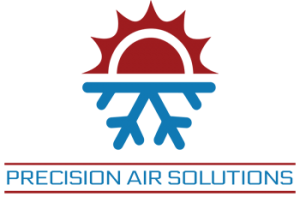- (707)-741-1993
- chris@precisionhvacco.com
- Serving Solano & Surrounding Counties
4 Tips to Improve the Quality of Air You Breathe At Home
Air pollution is found both outside and inside the house. The good news is that we can, through small, simple actions, manage to improve the quality of our indoor air. Find out which ones.
Pollens, agricultural pesticides, road traffic… The sources of external pollution are numerous but they are, on the whole, well identified. This is still far from being the case in our homes. We are exposed to multiple ‘pollutants’ present in indoor air.
Only here, we do not necessarily perceive them. Some emanate from the products or equipment that are with us, others are linked to our uses and our behavior. How to act on our scale to improve the quality of indoor air? Answers in 8 practical tips that are easy to implement on a daily basis.
1. Ventilate your home regularly, especially the bedroom
To allow stale air to escape from your home, it should be aired at least twice a day for 10 minutes. It is essential to ventilate the room well because it is a room very charged with carbon dioxide. By opening your windows in the morning, you make the pollutants of the night disappear and by opening them in the evening, those of the day.
Certain exceptional circumstances require increasing the ventilation periods, this is particularly the case during work or intensive cooking assignments.
Remember: It is not recommended to ventilate your accommodation in the event of a pollution peak. Also be careful if your accommodation is located in town, along a busy thoroughfare. In this case, do not ventilate during peak hours.
2. Understand how the ventilation of your home works
Understanding how the ventilation of your home works is essential to know how the air circulates inside and where the outside air comes from. The better we understand how the exchanges of air take place between the interior and the exterior, the better we can act so that they take place in good conditions.
Where are the air inlets and outlets? Which devices were installed and where? So many questions that the occupants must ask themselves when they settle into the accommodation.
3. Properly maintain your ventilation units
In order for the air flows to circulate as well as possible and therefore for the pollutants to be evacuated from the accommodation, it is first of all necessary to check that the air inlets and the extraction vents are not obstructed. It is recommended to regularly clean the various equipment dedicated to ventilation.
The ventilation grilles, for example, can easily be cleaned, but you still have to think about it!
In the event of heavy clogging, the filter can be changed, a simple operation within everyone’s reach.
4. Limit risky behavior
While equipment has an important role to play in ensuring good air quality in homes, so do the occupants. Certain behaviors present a greater risk of pollutant emissions than others.
Smoking at home or even burning incense or a scented candle are gestures to be banned. Some recent investigations have indeed revealed that the combustion of these products would generate the emission of formaldehyde.
